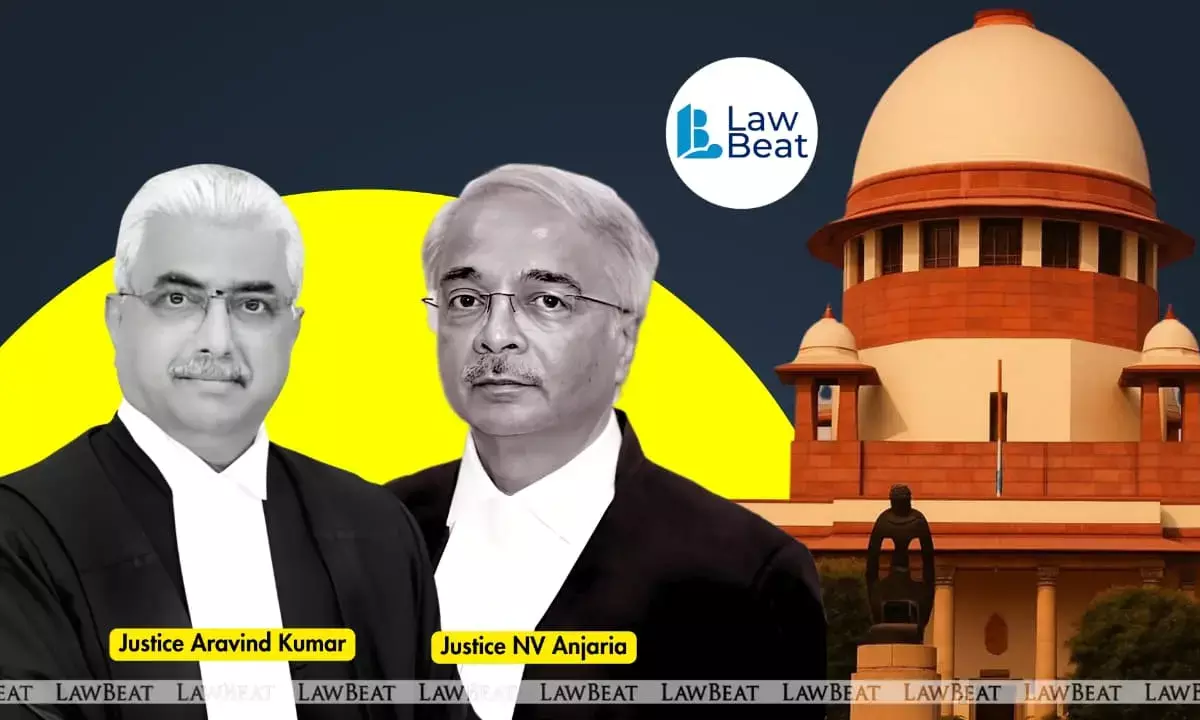'Substantial Justice Can’t Be Sacrificed to Bureaucratic Delay': Supreme Court

The Supreme Court applies liberal interpretation on delay applications
The Supreme Court recently observed that the expression "sufficient cause" under Section 5 of the Limitation Act, 1963, must receive a liberal, rather than a technical or pedantic, interpretation when considering an application for condonation of delay.
A bench of Justices Aravind Kumar and N V Anjaria said, irrespective of the length of delay, if the cause shown is sufficient, the delay deserves to be condoned, maintaining that substantial justice cannot be sacrificed for the public good even when bureaucratic lethargy is present.
"When substantial justice is pitted against technicalities, necessarily such technicalities will have to kneel down before the substantial justice or in other words, where the cause shown for the delay is sufficient and the opposite party can be suitably compensated for such delay, necessarily the delay has to be condoned, irrespective of the length of delay,'' the bench said.
Conversely, court noted that if the delay is short, but the cause shown is not in the proximity of truth or is contrary to facts, the delay cannot be condoned and the application must be dismissed. The bench also pointed out that this proposition is supported by the law laid down by the court in Collector, Land Acquisition, Anantnag & Anr. Vs. Mst. Katiji & Ors (1987).
Court was hearing a matter arising out of an appeal filed by the State of Jharkhand against an order of the high court dated October 28, 2024, which had refused to condone a delay of 221 days in filing an intra-court appeal. The high court had rejected the application for condonation of delay and dismissed the appeal, finding that the appellants had adopted a very lethargic attitude in the matter of filing the Letters Patent Appeal.
In the case at hand, the Supreme Court observed that the cause shown for the delay was explained as the officials being involved in the Special Summary Revision 2024 and also in the programme of "Sarkar Aapke Dwaar."
The bench said, "Though the cause shown in the application for condonation of delay is casual, this court cannot lose sight of the fact that the State being an impersonal machinery moves at a snail’s pace, there will be no personal interest of the officials in withholding the file."
Court further opined that a certain amount of latitude requires to be extended when administrative delay is pleaded.
The bench concluded that the cause for the delay was explained as it was contended that the concerned officials were deputed on other official assignments.
"Thus, delay seems not to be intentional. The writ applicant who had succeeded before the single judge can be suitably compensated for espousing his cause in the appellate court and before this court by award of realistic cost of Rs 1,00,000 payable by the State,'' the bench said.
Court clarified that the payment of cost to the writ applicant will be a condition precedent for the appeal being taken up on Board and disposed of on its own merit.
The court, while explaining that it had not expressed any opinion on the merits of the matter, set aside the impugned high court order and returned the file to the high court. The bench added that the State would be at liberty to recover the cost from the officers responsible for the delay, if they deem fit.
Case Title: State of Jharkhand & Ors Vs Azadul Haque & Anr
Judgment Date: September 12, 2025
Bench: Justices Aravind Kumar and N V Anjaria
